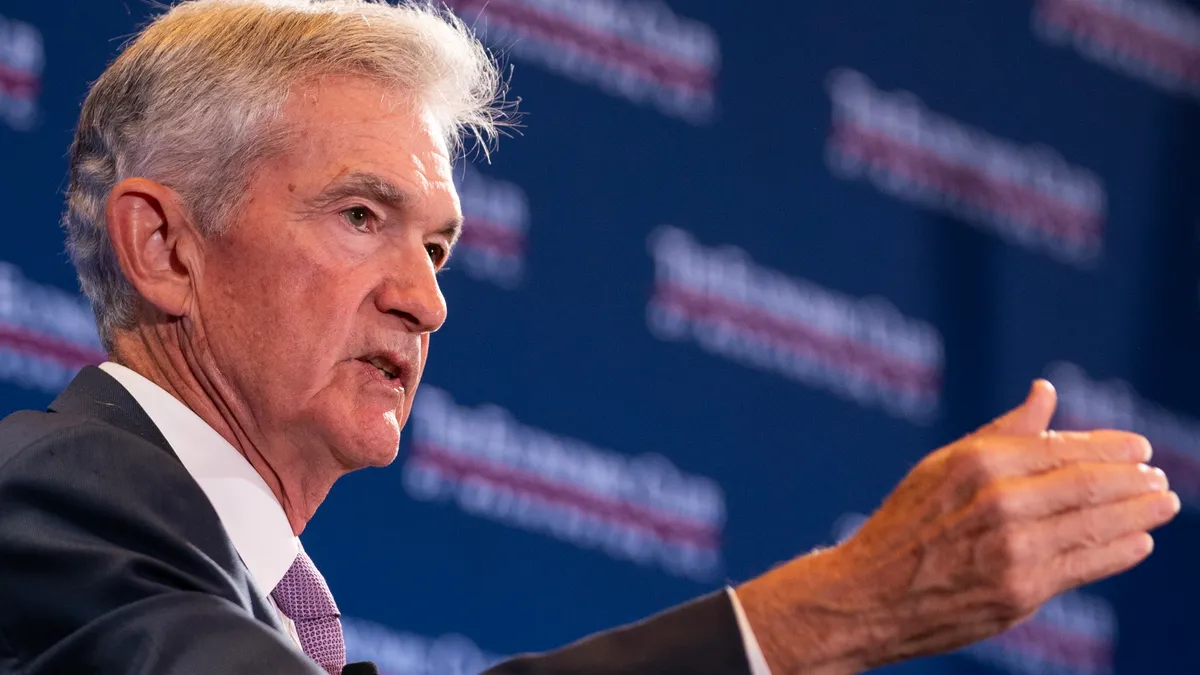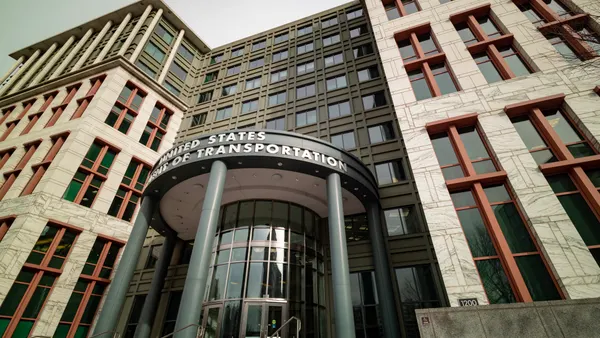The International Brotherhood of Teamsters and Yellow Corp. this week traded heated letters, obtained by Transport Dive, that shed more light on the breakdown in negotiations over the proposed operational changes in the One Yellow network overhaul.
Teamsters National Freight Director John Murphy demanded Wednesday that Yellow “put its money where its mouth is” and negotiate the changes during contract bargaining later this year.
Yellow SVP of Trucker Relations Bryan Reifsnyder responded Thursday that the carrier rejects the union’s cancelation of a negotiation hearing next week.
The union “has no right — contractual or otherwise — to unilaterally cancel that hearing,” Reifsnyder wrote.
After calling off the April 5-7 hearing with the Overland Park, Kansas-based LTL last week, the Teamsters on Wednesday criticized One Yellow in a memo to members and ordered the carrier to halt its use of purchased transportation. Yellow, which uses PT to provide extra capacity, responded it was already reducing it due to slack demand: Tonnage tanked by 25% last quarter.
Murphy tore into the network overhaul in his letter the same day. He wrote to Reifsnyder the plan to sell off 28 terminals and unify its four subsidiaries into a single, super-regional carrier violated the union contract and “would likely fail due to its utter disregard of reality, practicality and history.”
“It seems obvious the primary objective of the proposal is not for the plan to work, but to help Yellow obtain new financing from its lenders,” Murphy wrote. “Yellow appears to be using a tired ‘strategy’ of equating motion with progress to enchant shareholders and distract investors.”
Yellow, which cut jobs last quarter because of the drop in demand, has nearly $1.6 billion in debt payments and obligations due in the next three years. Real estate sales from combining YRC Freight, Reddaway, Holland and New Penn into a 290-terminal One Yellow network help the company reduce its debt.
The Teamsters letter prompted a 3-page response from Reifsnyder, denouncing “egregious falsehoods and baseless insults.”
“It is truly unfortunate that a major union leader would be interested in making irresponsible ad hominem attacks that imperil the jobs of his members, muzzle them from voting, and seek to destroy their loyal employer, all for the sake of scoring a few political points or a perceived advantage in unrelated negotiations,” Reifsnyder wrote.
The Yellow senior vice president said the company went into its March 23 meeting with the Teamsters “prepared to be responsive to the concerns it heard in its discussions with the local unions affected.” But the union opted for “gamesmanship and saber rattling,” turning the meeting into a photo-op rather than discussing modifications and clarifications to the proposal, he said.
"If the Teamsters are serious about reaching a resolution, dispense with the posturing and let’s have a serious discussion."

Bryan Reifsnyder
Senior Vice President of Trucker Relations, Yellow
Reifsnyder noted that the Teamsters had already approved One Yellow plan in its western region, which he said demonstrated the union’s understanding of its importance.
The Teamsters should “do what it has challenged the Company to agree to,” Reifsnyder argued, and allow its 22,000 union-represented workers to vote on the proposed changes.
“Though Yellow disagrees that such a vote is required, we readily agreed to submit the Change to a vote,” he wrote. “If the Teamsters are serious about reaching a resolution, dispense with the posturing and let’s have a serious discussion.”
Negotiating the changes in the union contract bargaining process would ensure each side has the full array of bargaining rights and tools at their disposal, Murphy said in his letter.
Murphy’s memo to members made clear a key sticking point in the negotiations: Yellow’s proposal to merge seniority lists and add Utility Employee positions, in which drivers also work the docks.
The company and the union declined requests by Transport Dive for documentation showing the proposed number of Utility Employee positions. But a copy of the document posted on TruckingBoards.com calls for 121 utility positions at 39 terminals.
“The proposal sought to force road drivers to work on the dock, to modify and merge seniority lists, and to alter established dispatch and work rules,” Murphy said. “The proposal violated various agreed upon local union agreements concerning the use and protection of ‘dock-only’ workers.”
That’s why the union stopped the talks and demanded they be part of the collective bargaining process, he wrote.
“It became clear that the company’s proposed change of operations was an effort to significantly rewrite current contractual language without engaging in legitimate negotiations,” Murphy wrote in the memo.






















